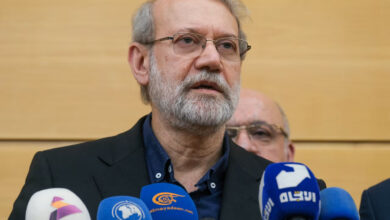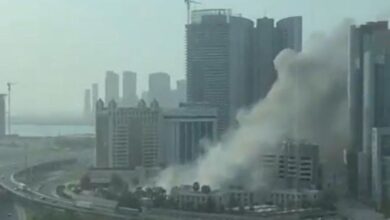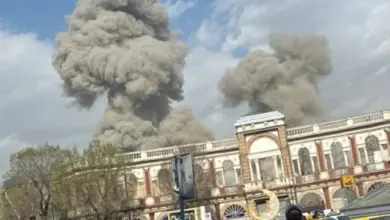A former bodyguard recently recalled saving the life of the Israeli Ambassador Moshe Sasson during the assassination of former President Anwar Sadat in 1981. The Israeli guard, who declined to reveal his identity, recounted the experience with his back to the camera during an interview on Israel’s Channel 10 news program which aired Thursday evening.
“I grabbed the ambassador, threw him on the ground, tossed over the chair and covered him with my body,” he said. “I lowered his head and people looked in our direction. No one understood what was happening.”
While Thursday marked the 38th anniversary of Egypt’s crossing of the Suez Canal during its 1973 October War with Israel, it also marked the 30th anniversary of Sadat’s assassination in 1981 during an annual victory parade to honor the event.
Sadat is widely believed to have been assassinated by Islamist army officers who opposed the peace agreement he signed with Israel two years before. In April 1982, Egyptian authorities tried, convicted, and executed Lieutenant Khalid Islamboul, purported leader of the assassination squad.
During the march, Israeli ambassador sat close behind Sadat.
According to the news network, Israeli investigations conducted shortly after the assissination revealed that the body guard’s quick response – along with that of a colleague – saved the ambassador’s life.
“The shots went on for 51 seconds, which is a long time,” the body guard said. “They shot bursts from 4 AK-47s. They would just use up their ammo and reload, and there was no one fighting back from our side.”
During the military parade, six planes soared over the platform where Sadat was sitting with his retinue. The body guard says that while everyone looked toward the sky to view the display, he and a fellow body guard fixed their eyes on the street below.
“Suddenly, we saw a truck stop and an officer get out,” he said. “The officer ran toward the platform with something in his hand and threw it – people watched but didn’t understand what was happening. Then there was a big explosion.
“They were shooting people, and they were being killed and wounded – a terrible panic. Most of the bullets didn’t hit Sadat but instead struck our area. We thought it was a military coup.”
In addition to Sadat, 11 others – including a Coptic Orthodox bishop, the Cuban ambassador, and an Omani general – were killed. Another 28 were wounded, including Vice President Hosni Mubarak, four US military liaison officers, and Irish Defense Minister James Tully.
Falsely believing a military coup had taken place, the bodyguard and his fellow Israelis feared for their lives immediately following the incident. They attempted to hide any sign that they were Israelis, he recalled.
“There was an Israeli flag on the ambassador’s car, and I remember breaking off the [pole].”
Surprised by his strength at the time, he tested himself later to see if he could repeat the feat, but failed.
“It was because of the situation,” he concluded.




